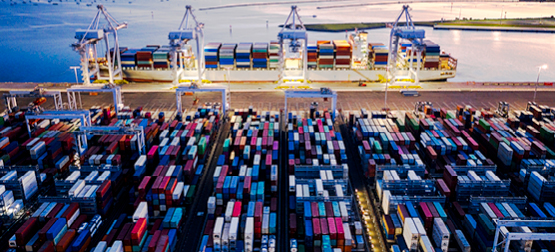Beyond the pandemic: rethinking the supply chain
Transactions
Securing or rebuilding supply chains may involve the acquisition of suppliers, which raises a range of legal considerations, including with respect to due diligence, foreign investment restrictions and merger control.
Due diligence
As part of the broader due diligence (DD) process, a manufacturer considering the acquisition of a supplier will want to identify any legal or operative risks in the target’s own supply chain, including by asking:
- how reliable is the target’s supply chain, particularly at sub-tier level?
- how much visibility does the target have of its own supply chain, including with respect to compliance/ESG issues?
- how has the target reacted to any disruption (including any force majeure events) and is such disruption still continuing?
- to what extent has the target invested in digitising its supply chain?
In the contractual documentation, any issues identified during the DD process should be reflected in the form of tailor-made representations and warranties or indemnities that, prior to COVID-19, weren’t usually included.
Foreign investment restrictions
COVID-19 has caught many countries off guard, exposing inadequate strategic reserves and governments’ inability to organise rapid (substitute) production of critical supplies. In response, governments are now more likely to scrutinise deals that involve the production of anything deemed critical to national wellbeing, including medical devices, pharmaceuticals and personal protective equipment (PPE). Germany and the UK – to take two examples – have tightened their foreign investment rules relating to deals in the health sector.
More protection for vital assets – a trend pre-dating COVID
Even before the coronavirus emerged, rising opposition towards free trade was leading market economies to tighten their foreign investment regimes. For example, the Committee on Foreign Investment in the United States has been gradually granted more powers to intervene in certain types of transactions involving critical technologies. This has resulted in the lines between national security and national economic policy becoming increasingly blurred.
Merger control
Antitrust regulators are traditionally less concerned about business combinations at different levels of a supply chain because the parties involved do not directly compete against one another.
However, even where parties are not direct competitors, regulators will still scrutinise carefully any vertical-integration deal that could foreclose rivals in the upstream or downstream markets (eg where a manufacturer takes control of an important input or customer base).
Vertical integration may also lead to regulatory concerns that tacit collusion between market participants – at either at the supplier or manufacturer level – could be more likely post transaction.
COVID-19 has placed considerable pressure on supply chains and we should expect ‘distressed M&A’ in a range of sectors in the second half of 2020 and early 2021. It may be too early to tell how the pandemic will affect substantive antitrust reviews going forward. But experience from the last financial crisis strongly suggests that it is unlikely to result in a ‘free pass’ for crisis-driven deals that would otherwise give rise to competition concerns.
For more on merger control during times of economic distress, read our blog.
Our experience
Advising the Volkswagen Group of America on its Series F investment of up to $200m in QuantumScape, a California-based company focused on the development of solid-state battery technology.
Volkswagen is leading QuantumScape’s Series F financing round after participating in several of its prior rounds, most recently QuantumScape’s Series E round in 2018.
Beyond the pandemic
Rethinking the supply chain
- Why supply chains are on the agenda
- Supply-chain legal issues
- Transactions
- Collaborations
- Insolvency
- Contracts
- Technology and data
- Regulatory compliance
- Workforce
- Tax
- Renegotiating long-term contracts
- Informal renegotiation
- Escalation
- Litigation/arbitration
- Contract-renegotiation law in nine key jurisdictions – a summary
Meet the team

Dr. Stephan Waldhausen Partner
Düsseldorf

Thomas McGrath Partner
London, Brussels

Takeshi Nakao Partner
Tokyo

Alan Wang Partner
Shanghai, Beijing

Paul Humphreys Partner
New York






